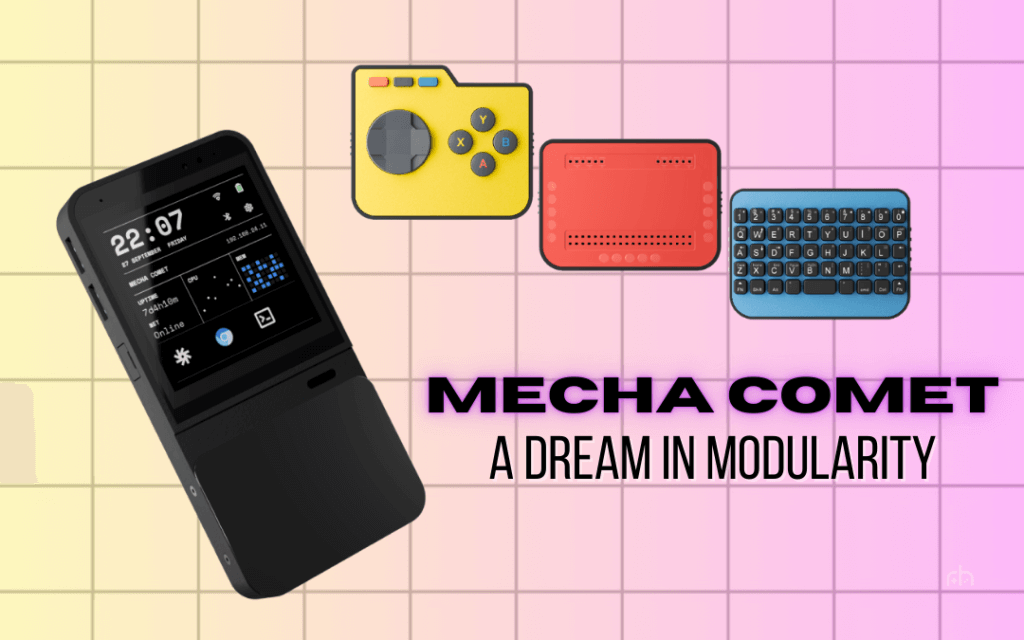For the past few years, one of the pitfalls of buying the newest, latest, and greatest handheld is either that it will be obsolete in a few months, or its parts aren’t perfectly suited to specific needs. Modularity in electronics — namely handhelds, in this case — aims to address that burden by putting the choice directly in your hands.
The Mecha Comet was shown during CES 2025 and its modularity is the single most interesting feature it packs. It’s handheld gaming ambitions may disrupt a market built on the back of custom versions of Android and Linux distros, but it can also do so much more.
The device is powered by Mechanix OS, a custom distribution of Linux based on Debian. This ensures that all current Debian packages are perfectly compatible right out of the box. The design of the OS has followed a growing trend in Linux distros by prioritizing minimalism as well, giving it a sleek and yet feature packed design.

Mecha has also shared full specs for the Comet which show a touchscreen, gyroscope, real-time clock support, PCIe support, and more.
With full specs already being shared, and the device being on the CES showfloor, the promises set forth by Mecha do seem to make a splash when compared to other handheld devices. The hard part in comparison is that no other device on the market is as unique as the Comet aims to be with its extensions and the inherent use-cases for each one.
The Extensions

The standout feature for the Comet is what the company is calling “extensions.”
Extensions are swappable pieces of the overall device that alter the way it should or could be used. Of the three shown extensions, there are the gamepad, GPIO, and keyboard.
The gamepad, obviously, will aim to be a gamepad for any games being played on the system. It features a multi-directional D-pad and four action buttons with three other buttons assumed to be used for start, select, and menu if need be.
The GPIO extension gives access to 40 IO pins and a serial console over USB-C, while the keyboard extension does what its name would suggest — adds a keyboard.
Modular Linux Handhelds…What a Time to be Alive
Modularity in handhelds and tech is something that we have seen before, but not too often. In 2016, LG released the shortlived G6 which allowed users to buy modules that either added a better camera to the device or added higher quality speakers. Google also had attempted to dive into modular design with their Project Ara before canceling it altogether the same year.
In handhelds, especially retro handhelds, modularity is not something we have seen before. A Linux based handheld that spins up a modern take on the age-old hobby of tinkering is fully welcomed, and by open-sourcing their design files, Mecha can ensure that the future of the device is at least some part led by creatives within their own community.
Devices like the Popcorn PC, uPocket, and BeepBerry have already shown that handheld Linux computing is possible, but here, Mecha takes it a step further by allowing users to craft and build a Linux handheld however they see fit.
If you are interested in the Mecha Comet, you can get more information and be notified when the campaign launches on Kickstarter.
What did you think of this article? Let us know in the comments below, and chat with us in our Discord!
This page may contain affiliate links, by purchasing something through a link, Retro Handhelds may earn a small commission on the sale at no additional cost to you.


